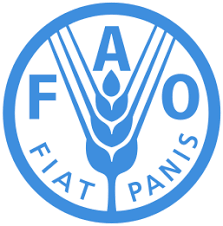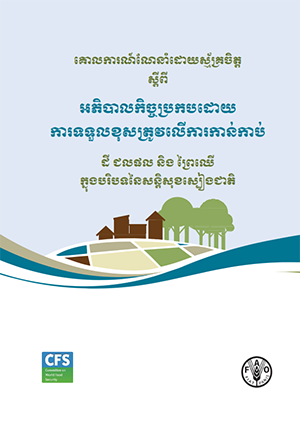Focal point
Location
The Food and Agriculture Organization of the United Nations leads international efforts to defeat hunger. Serving both developed and developing countries, FAO acts as a neutral forum where all nations meet as equals to negotiate agreements and debate policy. FAO is also a source of knowledge and information. We help developing countries and countries in transition modernize and improve agriculture, forestry and fisheries practices and ensure good nutrition for all. Since our founding in 1945, we have focused special attention on developing rural areas, home to 70 percent of the world's poor and hungry people.
Members:
Resources
Displaying 661 - 665 of 5074Caring for Commons - Securing legitimate rights
Millions of people worldwide depend on natural resources such as land, fisheries and forests that are used collectively as commons. Commons are essential to culture, identity and well-being. As a source of food and income, they are an important safety-net, especially for the most marginalized and vulnerable people. The Voluntary Guidelines on the Responsible Governance of Tenure of Land, Fisheries and Forests in the Context of National Food Security provide a historic opportunity to recognize and secure tenure rights to commons.
Women’s Land Rights in the Post 2015 Development Agenda
FAO presentation with an overview of SDG indicators 5a1 and 5a2.
Khmer Version of FAO’s Voluntary Guidelines on the Responsible Governance of Tenure (VGGT)
FAO published its Voluntary Guidelines on the Responsible Governance of Tenure (VGGT) of Land, Fisheries and Forests in the Context of National Food Security in 2012. The purpose of these guidelines is to serve as reference and to provide guidance to improve the governance of tenure of land, fisheries and forest with the overarching goal of achieving food security for all and to support the progressive realization of the right to adequate food in the context of national food security.
Voluntary Guidelines for Sustainable Soil Management (VGSSM)
Soils are an essential and non-renewable natural resource hosting goods and services vital to ecosystems
Why gender equality matters when dealing with governance of land
The eradication of hunger and poverty largely depend on how people, communities and others gain access to land. The livelihoods of many, particularly the rural poor including women, are based on secure and equitable access to and control over land and other natural resources. Land is a source of food and shelter; the basis for social, cultural and religious practices; and a central factor in economic growth.










